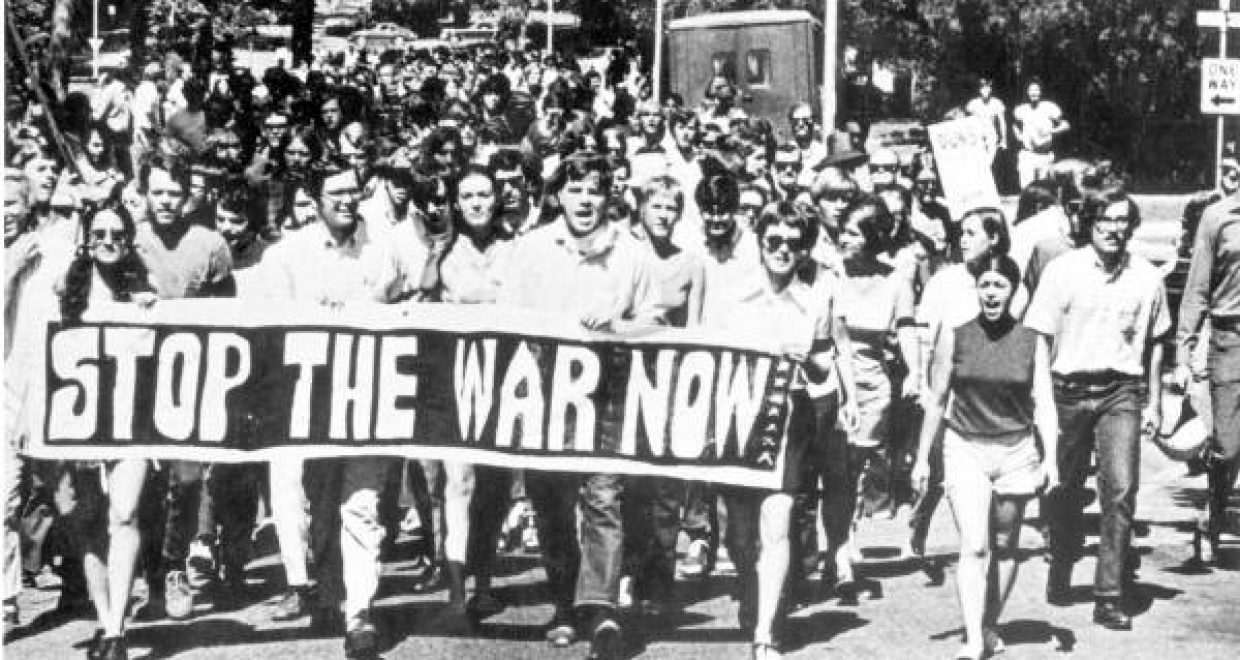Protecting Academic Freedom: Using the Past to Chart a Path Toward the Future
This blog accompanies the Forum on Academic Freedom published in History of Education Quarterly.
In the past decade or so, there has been an uptick in assaults on academic freedom across the globe. Whether through watch lists, denial of visas to travel to professional conferences, firings, or detentions and jail sentences, professors and teachers are battling for the freedom to regulate their own professional lives against government (and even administrative) officials who invoke national security and patriotism to justify suppression and enforce a particular consensus on contentious issues. Historians, of course, realize such assaults are not new.
Government officials have long recognized the power of educational institutions in building, maintaining, and justifying their rule and regularly sought to exploit it. Beth le Roux explains how the apartheid South African government cultivated a careful balance between the appearance of intellectual freedom with the need to protect the legalized racial hierarchy. In the early 1970s, according to Vania Markarian, the Uruguayan dictatorial regime closed the only university in the country and fired or jailed deans, professors, and students they suspected of being in opposition to the new authoritarian government. The institution reopened with government appointees in administrative posts who maintained control of everything from faculty absentee policies to classroom examinations. Chinese government officials also sought to control higher educational institutions to bolster their power, but an additional factor also influenced the nature and understanding of academic freedom there: the Confucian knowledge tradition. As Qiang Zha and Wenqin Shen point out, traditional Confucianism linked knowledge and action in a way that promoted the concept of “action intellectuals,” professors beholden not to freedom of inquiry but to ensuring social order and benevolent governance. More recently, as Anne Corbett and Claire Gordon discuss, the Hungarian government moved to take control of Central European University, just as it had the media and the judiciary, in order to consolidate power.
However, it is also important to remember that institutions, not just governments, punished teachers who strayed too far from the company line. In these different contexts, some scholars were more vulnerable than others. As Karen Graves argues in her essay on LGBT K-12 teachers, sometimes who was speaking was just as important as what was being said. Timothy Reese Cain, Marjorie Heins, and Hans-Joerg Tiede sound the alarm with regard to contingent or adjunct faculty as a particularly vulnerable class in the contemporary context. As institutions of higher education continue to hire faculty who are not on the tenure track at an increasing rate, securing academic freedom becomes all the more important—and all the more difficult.
There is hope, though. Several authors in this forum point to social movements or shifts in ideology as catalysts for increased protections for academic freedom. My own work on the southern United States during the middle 20th century documents the growth of academic freedom protections against the backdrop of the black freedom struggle and anti-Vietnam War movement.[1] There, professors at black and white, private and public institutions helped transform their campuses from institutions that fortified and justified the racial hierarchy into reputable academic centers that fostered and rewarded independent thinking In fact, all the authors in this forum remind us that administrators, teachers, and students have the power to resist external influence and to promote the robust exchange of ideas. Coordinating, pooling, and marshaling that power has been and probably will continue to be difficult, but it is vital to the health of the academy and to society itself.
Read Joy Ann Williamson-Lott’s full article Protecting Academic Freedom: Using the Past to Chart a Path Toward the Future
Read the full History of Education Quarterly Forum here
[1] Joy Ann Williamson-Lott, Jim Crow Campus: Higher Education and the Struggle for a New Southern Social Order (New York: Teachers College Press, 2018).
Main image: Florida State University students marching for anti-war protest : Tallahassee, Florida, 1970
Main image source: State Archives of Florida, Florida Memory, https://floridamemory.com/items/show/25387






